Deep Web vs. Dark Web: Understanding the Differences

Bisma Farrukh
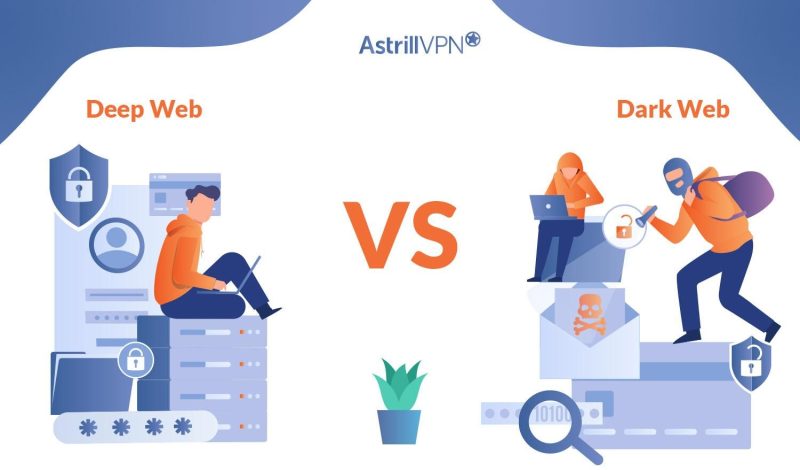
You’ve probably heard whispers of the “deep web” and “dark web” in hushed, ominous tones. There are a lot of myths and misconceptions about what exactly they are and what goes on there. Before you get spooked by the creepy stories, let’s set the record straight. The deep web and dark web aren’t as scary or dangerous as they’re made out to be.
The deep web refers to parts of the internet not indexed by search engines. It includes your email inbox, online banking portals, and streaming media services. Chances are, you access parts of the deep web daily without realizing it.
The dark web is a small corner of the deep web that can only be accessed using special software. While some use it for illegal activity, the dark web also allows for anonymity and privacy for those living under oppressive regimes.
The deep web and dark web aren’t just dens of criminal hackers and black market dealings. They have practical, everyday uses, and the spooky stories are mostly hype. The truth is far less frightening than the myths.
Table of Contents
What Is the Deep Web?
The deep web refers to parts of the internet that are not indexed by search engines like Google. This includes private databases, social networks, encrypted networks, and the dark web. The deep web consists of many different types of content and websites.
The deep web is estimated to be 500 to over a thousand times larger than the surface web that search engines can access. The exact size is difficult to determine due to the nature of the deep web. Some key statistics are:
- The deep web is estimated to contain between 595 exabytes and over 7,500 exabytes of data, compared to around 50 exabytes on the surface web.
- Around 90% of all the information on the internet resides in the deep web, including scientific research, medical records, government documents, and commercial databases.
- The dark web, which is a small part of the deep web that uses anonymizing technologies like Tor, is estimated to be around 0.01% of the deep web. The dark web is used for both legal and illegal activities.
- The largest part of the deep web is the “invisible web” of private databases. This includes subscription-only databases, corporate intranets, closed social networks, and personal hard drives.
- The deep web continues to grow rapidly as more information is created and stored in private databases rather than public websites. Deep web traffic has increased by over 300% from 2015 to 2021.
The deep web provides privacy for sensitive information and data. However, it also enables illegal activities on the dark web and makes it difficult to monitor for criminal or harmful behavior. The deep web remains a largely unexplored and mysterious part of the internet due to its inaccessible nature.
To access the deep web, you need special software like the Tor browser or a VPN like Astrill VPN.
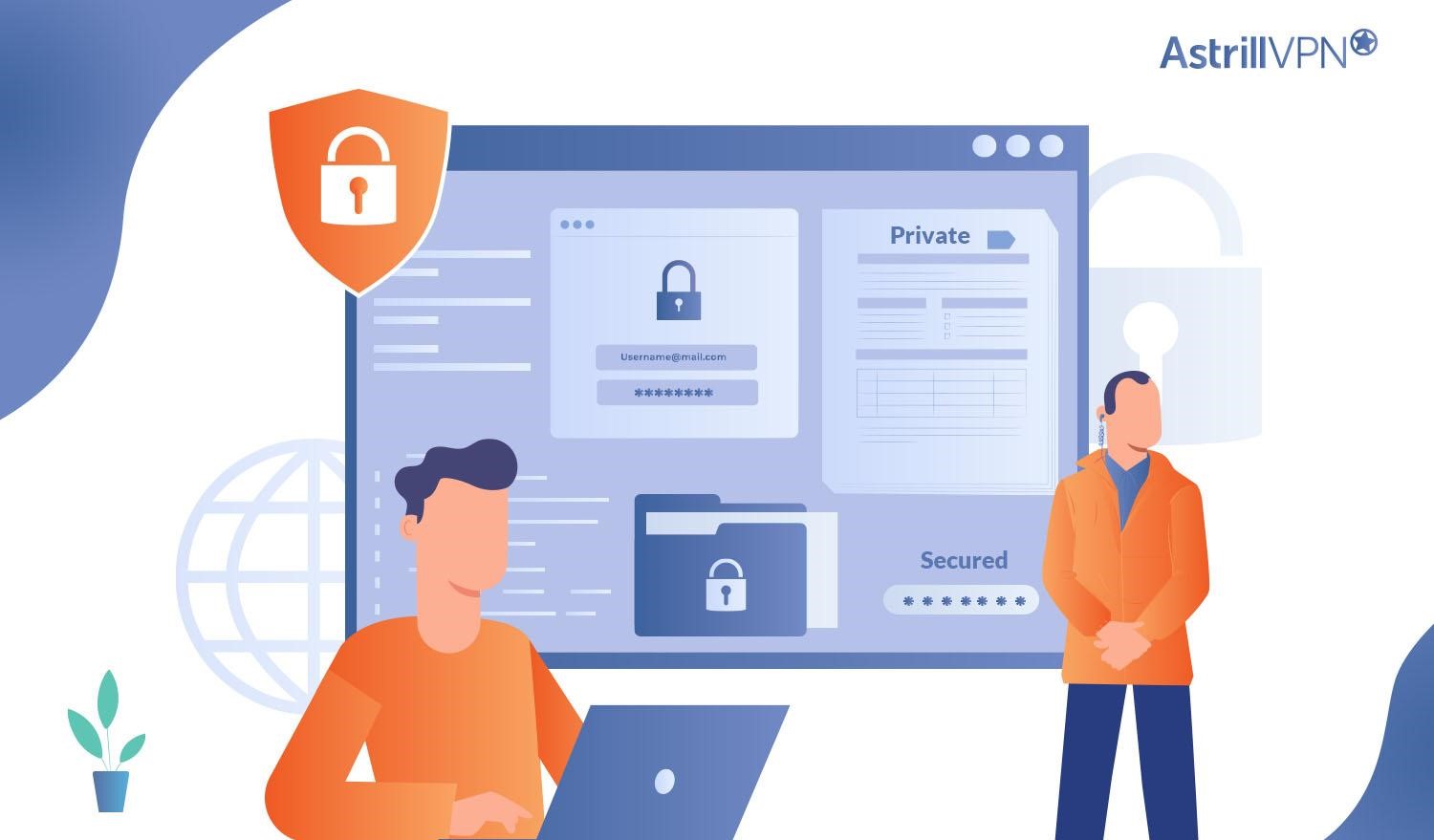
What is Dark Web?
The dark web refers to hidden websites that exist on an encrypted network and require specific software, configurations or authorization to access. While the dark web makes up a small part of the deep web, it has gained notoriety due to its association with illegal activities.
- According to recent estimates, the dark web consists of around 150,000 websites, with around 5,000 coming online every day. The most popular dark web sites tend to focus on illegal commerce, including the sale of drugs, weapons, stolen credit cards and other contraband.
- The dark web marketplace with the most listings is the Silk Road, which at its peak had over 13,000 listings for illegal drugs. The site operated for several years before the FBI shut it down in 2013, though similar dark web marketplaces have emerged to take its place. Cybercrime services are also big businesses on the dark web, with hackers selling tools, exploits, and stolen data.
- Child exploitation content is another troubling aspect of the dark web. The Internet Watch Foundation estimates that around 100,000 people access sites containing child sexual abuse content on the dark web each week. Law enforcement agencies struggle to monitor and takedown this illegal content due to the anonymous and encrypted nature of the dark web.
While the dark web is associated with illegal activities, it also enables free speech and privacy for users in oppressive regimes. Some argue that law enforcement crackdowns threaten these legitimate uses of the dark web. However, the prevalence of illegal commerce and exploitation content have led many to call for greater regulation and monitoring of dark web activity.
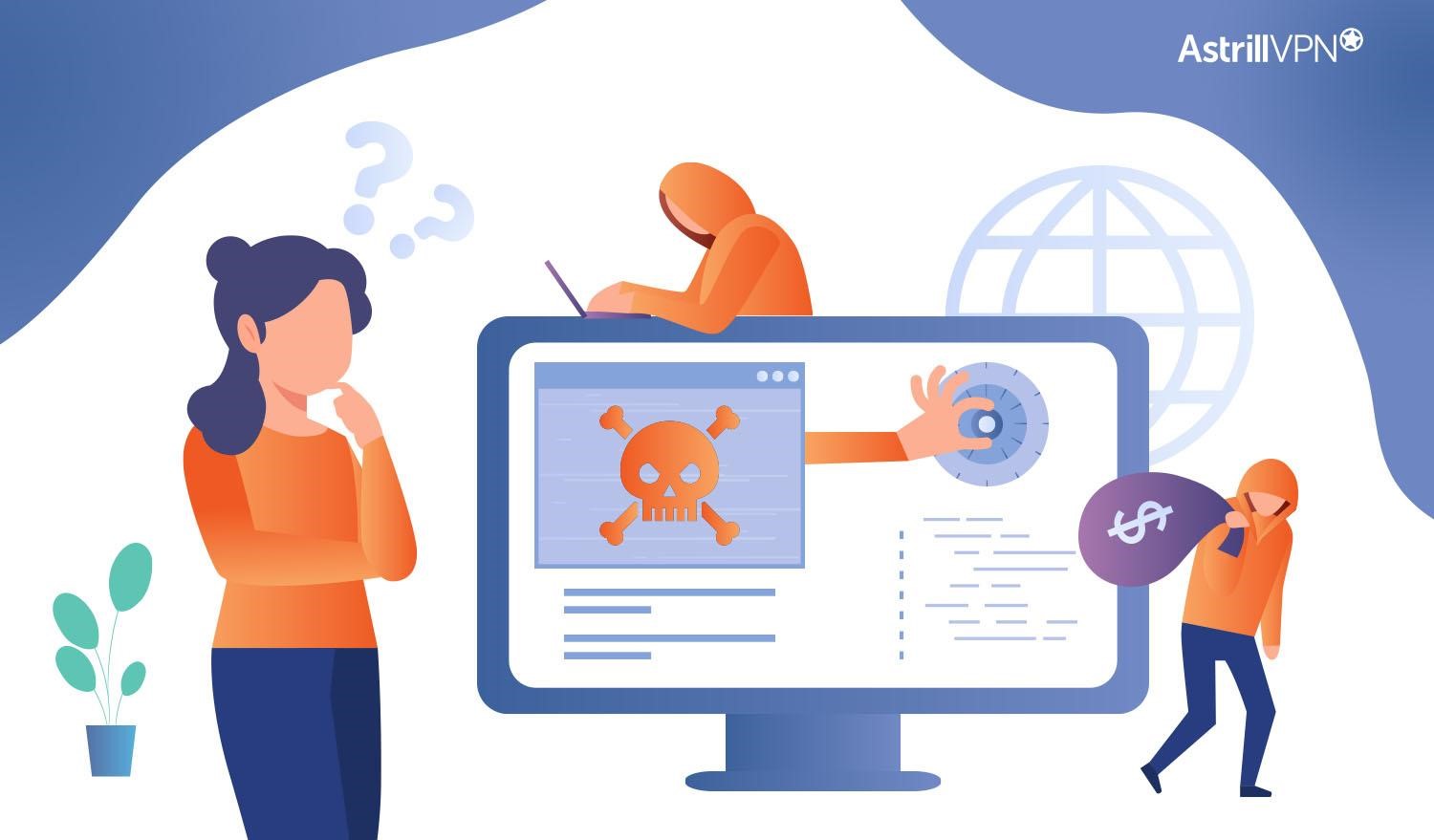
What Is the Difference Between the Deep Web and Dark Web?
The deep web and the dark web are not the same thing. While related, some key differences exist between these parts of the internet.
The key differences are:
| Deep Web | Dark Web |
|---|---|
| Applications | |
| Legal activities like academic databases, medical records, subscription websites, etc. | Illegal activities such as illegal drugmarketplaces, hacking services, etc. |
| Access | |
| Accessed through standard web browsers and search engines. | The diverse range of content from legal to confidential information. |
| Size | |
| Accounts for the majority of the Internet. Contains vast amounts of unindexed content. | Requires special tools like Tor browser for anonymity. |
| Scope | |
| Diverse range of content from legal to confidential information. | Primarily associated with illicit and criminal activities.Limited scope due to its secretive nature. |
| Operations | |
| Operates within the bounds of the law. Governed by standard internet regulations. | Smaller in size compared to the deep web.Consists of hidden sites that require specific access. |
So, in short, all of the dark web is part of the deep web, but not all of the deep web is part of the dark web. Busting this myth will help you better understand these hidden parts of the internet and how they differ.
How to Access the Dark Web and Deep Web?
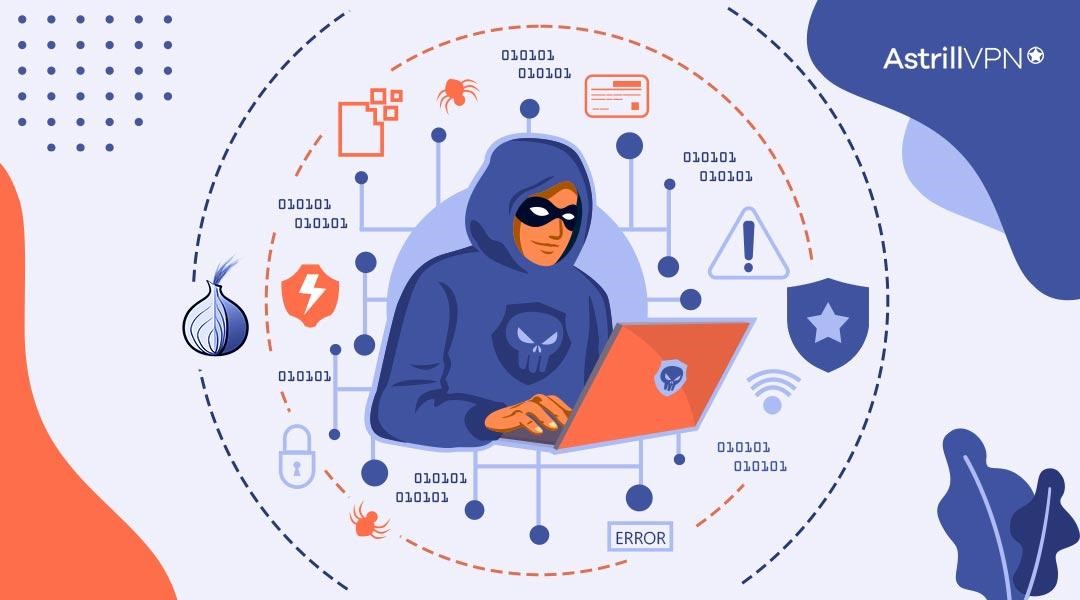
So you want to know how to get in the dark web and deep web, do you? Before diving in, you should know a few things to stay safe.
Use a VPN
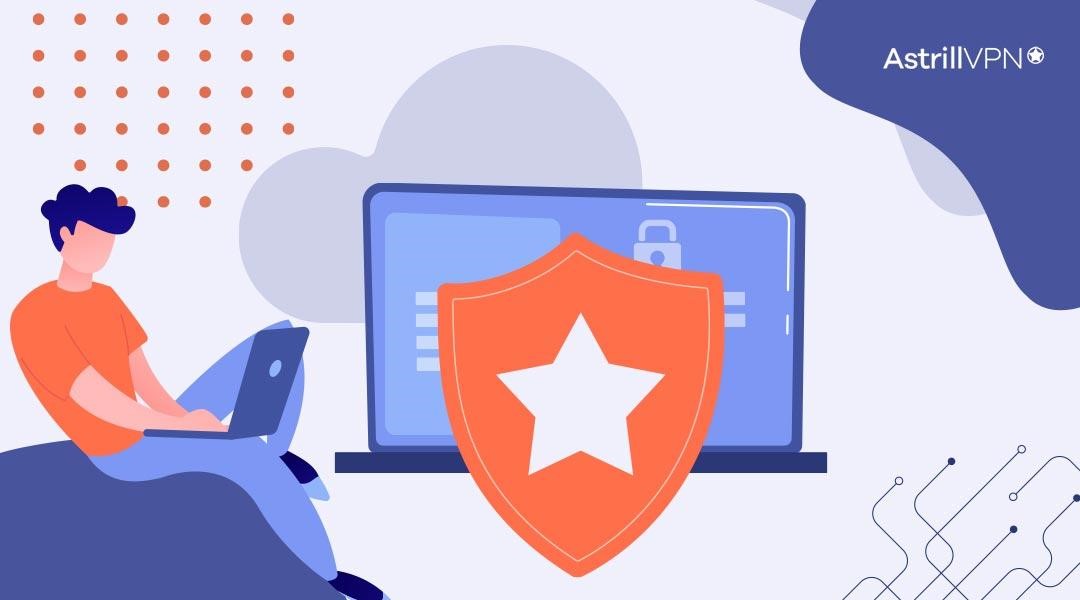
A virtual private network or VPN masks your IP address and encrypts your internet traffic. This hides your online activity and location, protecting your privacy and anonymity. Services like AstrillVPN offer apps for Windows, Mac, Android, and iOS to get you started.
Download the Tor Browser
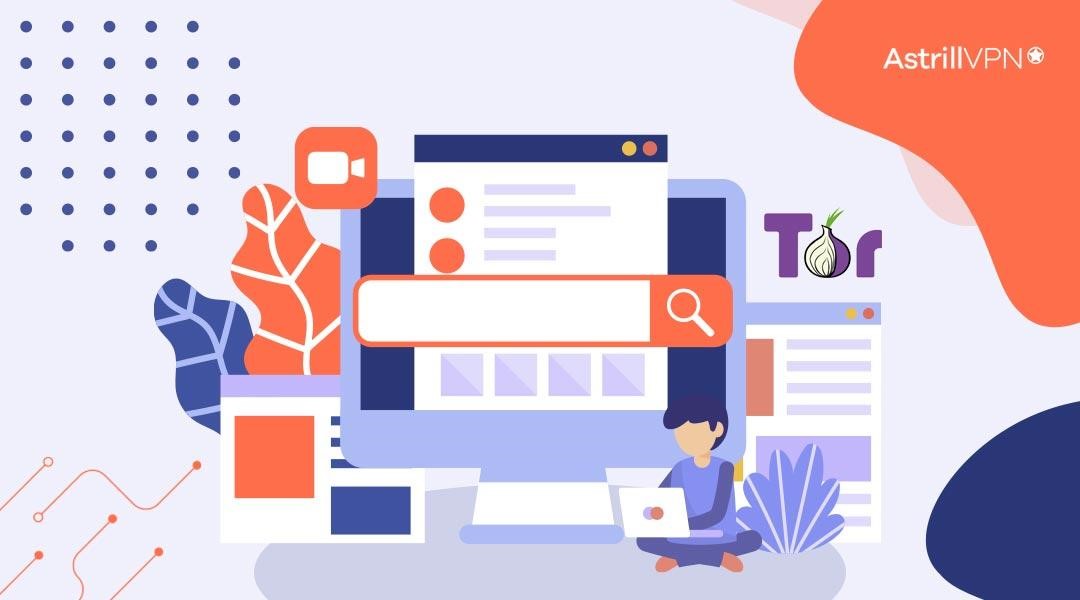
The Tor Browser is free, open-source software that lets you access the deep web and dark web anonymously. It hides your location and identity by encrypting your traffic and routing it through a network of relays. You can download the Tor Browser on their official website, torproject.org.
Be Cautious
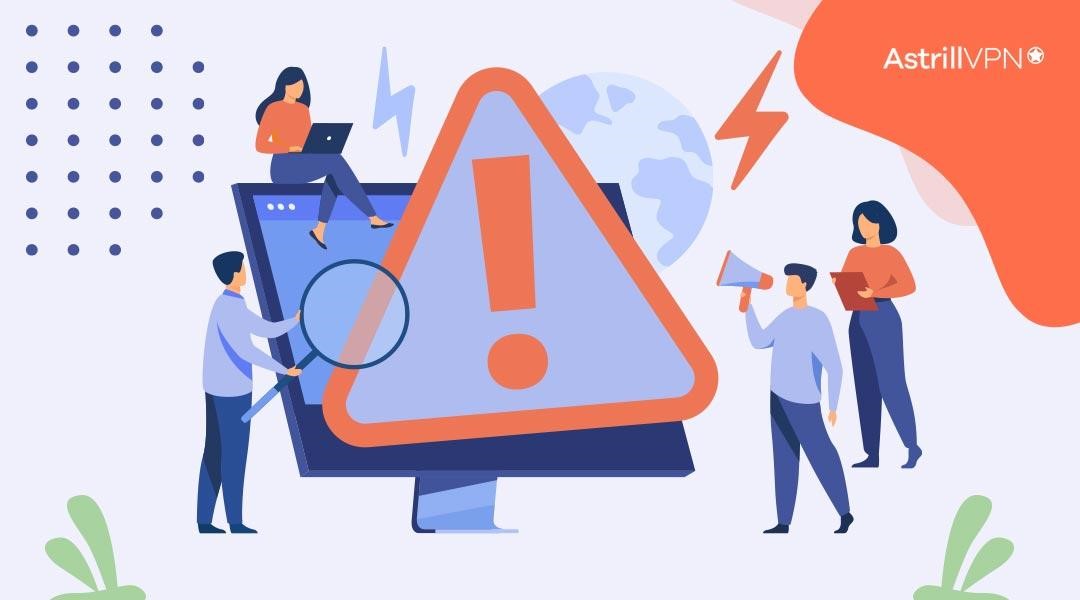
The deep web and dark web contain illegal and dangerous content, so proceed with caution. Never share personal information or do anything illegal. Stick to reputable sites and avoid clicking suspicious links or downloading anything.
Explore the Indexes
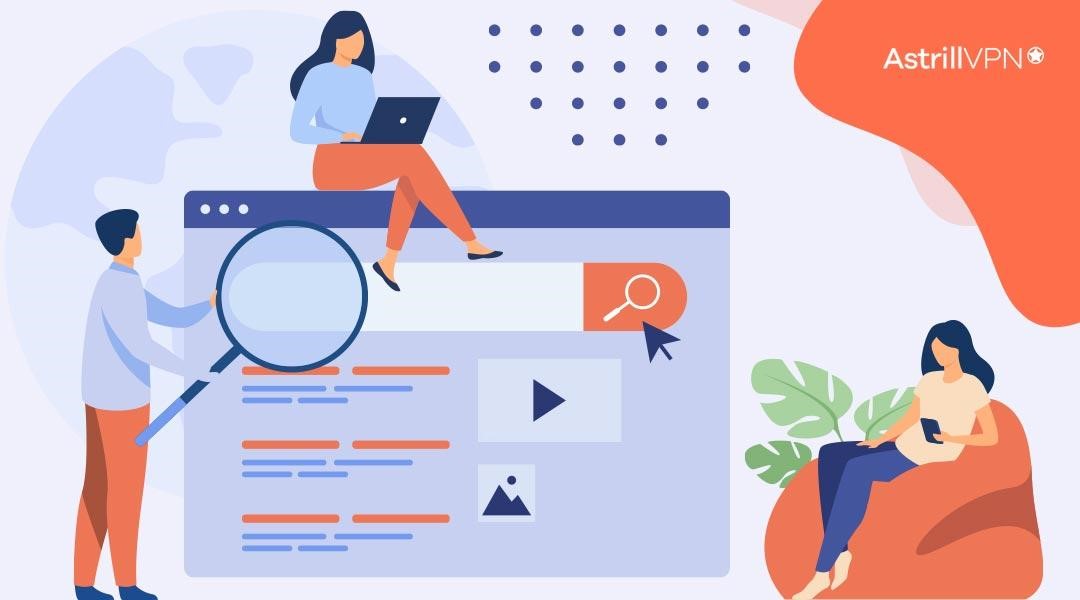
Once you have Tor set up, you can explore deep web indexes like The Hidden Wiki, Not Evil, and OnionDir to find interesting sites. These function like search engines cataloging thousands of .onion sites. Look for forums, wikis, chat rooms, and marketplaces to start.
The deep web and dark web are fascinating parts of the internet, but also risky. By taking the proper precautions, you can explore them safely and gain insight into this hidden world. But if anything makes you uncomfortable, don’t hesitate to disconnect from Tor immediately. Your privacy and security should be top priorities.
How Much of the Internet Is the Dark Web?
The dark web makes up only a tiny fraction of the deep web.
What percent of the internet is the dark web?
Estimates range from just 0.1% to 5% of the deep web. The deep web encompasses about 96% of the internet, with the surface web making up the remaining 4% that most internet users access daily.
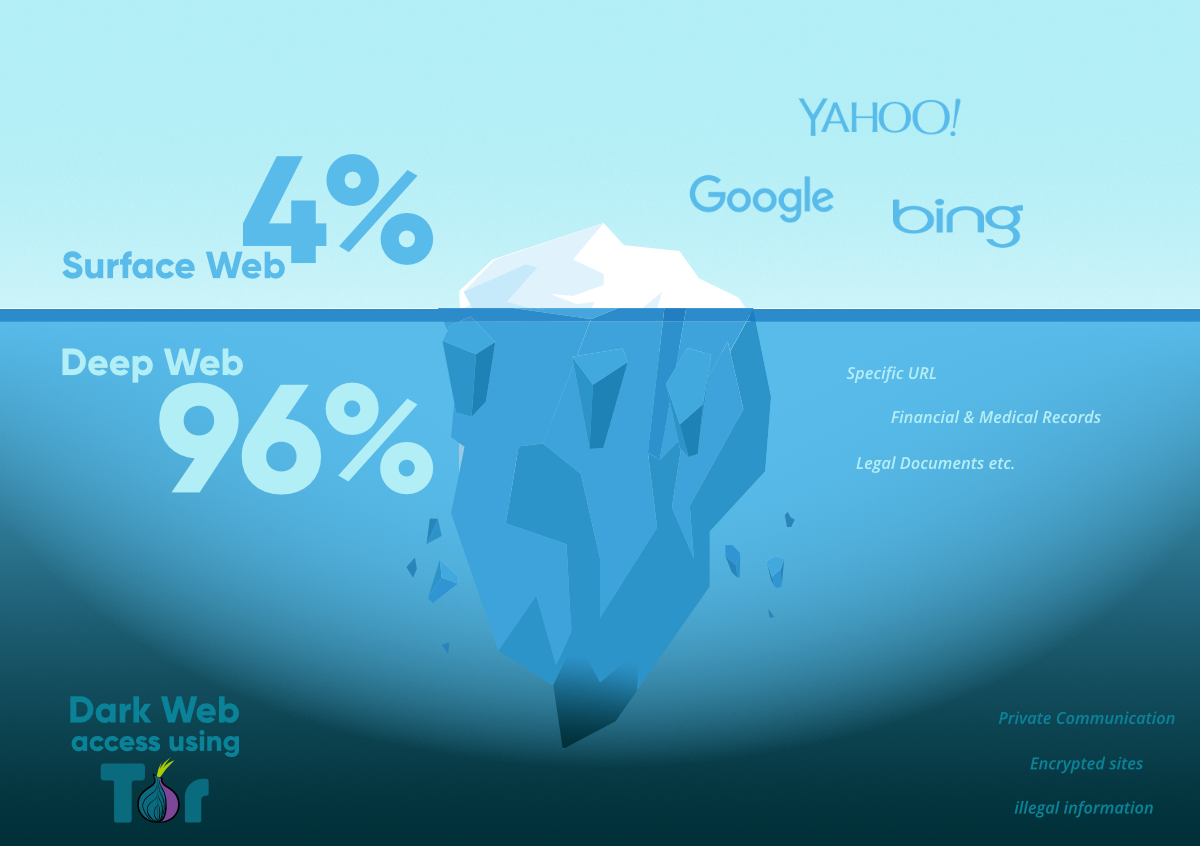
While the dark web may seem vast and mysterious, the reality is that it comprises only a small portion of the internet. The deep web refers to all parts of the internet not indexed by search engines like Google. This includes your email inbox, online banking portals, library databases, and more.
The dark web refers to anonymous networks like Tor that allow people to hide their identity and location. Tor hosts dark websites with .onion URLs that are extremely difficult to trace or take down. While the dark web does contain illegal and unethical content, it also serves as an outlet for political dissent and activism in some countries.
- The surface web is what most internet users access every day through search engines and public websites.
- The deep web makes up about 96% of the internet and includes private networks and databases not accessible through search engines.
- The dark web makes up only a tiny fraction of the deep web, estimated to be between 0.1 to 5% of the total internet.
- Although small, the dark web is used for both illegal activity as well as political dissent and free speech.
In summary, while the dark web seems ominous, it comprises only a tiny portion of the massive deep web and the internet. The vast majority of online activity happens on the surface web and legitimate parts of the deep web that we access daily.
How Much of the Internet Is the Deep Web?
The vast majority of the Internet is invisible to most users.
The deep web refers to all the content on the Internet that isn’t indexed by search engines like Google. This includes things like your email inbox, online banking portals, subscription websites, and dynamic web pages. By some estimates, the deep web contains 400 to 500 times more information than the surface web, the part of the Internet that is indexed by search engines.
The deep web isn’t necessarily shady or illegal. Much of the content on the deep web is mundane and uninteresting to most people. However, the deep web does contain some unsavory content like illegal marketplaces, fraud sites, and other criminal activity since it’s more difficult to trace and take down. The dark web refers specifically to websites that can only be accessed using special software like Tor that anonymizes traffic and hides the location and identity of the website and its users.
So while the deep web makes up the vast majority of the Internet, most of it is boring, private information. The dark web, a small subset of the deep web, is where most of the illegal and unethical content resides. But don’t worry, you’re very unlikely to stumble upon it by accident in your normal web browsing. Unless you’re using special software and intentionally accessing .onion sites, you’ll remain blissfully unaware of the dark corners of the deep web.
Common Myths About the Deep Web and Dark Web
The Deep Web and Dark Web Are Not the Same
The terms “Deep Web” and “Dark Web” are often used interchangeably, but they are not the same. The Deep Web refers to parts of the internet not indexed by search engines, like password-protected sites or dynamic web pages. The Dark Web is a small portion of the Deep Web that can only be accessed with special software like Tor.
You Can’t Just Stumble Upon the Dark Web
You won’t find the Dark Web just by browsing the internet. It requires installing special software like Tor to access .onion sites that are hidden and anonymous. The Dark Web is intentionally hidden and not easy to navigate for the average internet user. You have to specifically seek it out and know how to access it.
Not Everything on the Dark Web is Illegal
While the Dark Web is known for illegal activity, not all of its content is unlawful. The Dark Web also protects political dissenters, whistleblowers, and journalists. Some people use it to bypass censorship or share information anonymously. The Dark Web provides privacy and anonymity for both good and bad purposes.
Law Enforcement Monitors the Dark Web
Some believe that the anonymity of the Dark Web protects them from law enforcement. However, government agencies do monitor the Dark Web and work to crack down on criminal activity. Law enforcement uses special tools and employs cyber experts to track illegal behavior on the Dark Web. Anonymity does not equal immunity.
The Deep Web and Dark Web are complex topics often shrouded in mystery. By understanding the differences between these parts of the internet and separating the facts from the myths, you can gain a clearer picture of what really goes on in the depths of the web.
Deep Web vs. Dark Web: FAQs
Q: Is the deep web the same as the dark web?
No, the deep web and dark web are not the same. The deep web refers to parts of the internet not indexed by search engines. This includes things like your email inbox, online banking portals, and paywalled academic journals. Accessing the deep web is perfectly legal.
The dark web, on the other hand, refers to encrypted networks that are intentionally hidden and anonymous. Websites on the dark web often engage in illegal activity like drug trafficking or other black markets. Accessing the dark web itself is not illegal, but buying or selling illegal goods on dark web markets certainly is.
Q: Can I get in trouble for browsing the dark web?
Simply browsing the dark web is typically not illegal, but it can be risky. Law enforcement often monitors dark web sites, and your internet activity and IP address are not anonymous. If you stumble upon illegal content or make illegal purchases, you could face legal trouble. For casual curiosity, it’s best to avoid the dark web altogether.
Q: Is it illegal to access dark or deep web?
Accessing the deep web and dark web themselves are not inherently illegal. However, both contain illegal and unethical content that you could accidentally encounter. The dark web in particular is designed to facilitate anonymous criminal activity, so browsing it does come with risks even if your intentions are innocent. Unless you have a specific legal and ethical purpose, it’s best for most people to steer clear of the dark web. Stick to the open web and you’ll have nothing to worry about!
Conclusion
For the average internet user, the deep web and dark web really aren’t that exciting or perilous. Focus on using the regular internet for entertainment, information, and communication. If you do get curious and want to explore the deep web, do so carefully and avoid following any links that seem sketchy. But really, there are so many amazing parts of the open internet to enjoy – you’ll probably find the deep and dark web rather dull in comparison!


No comments were posted yet